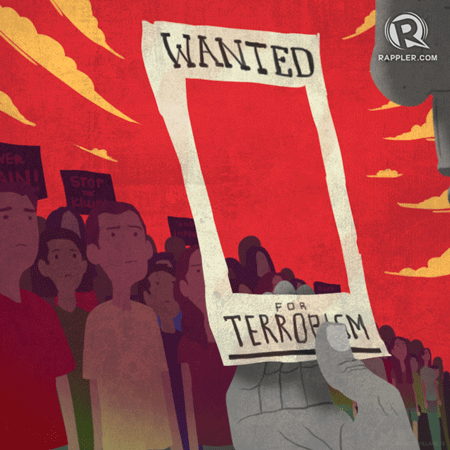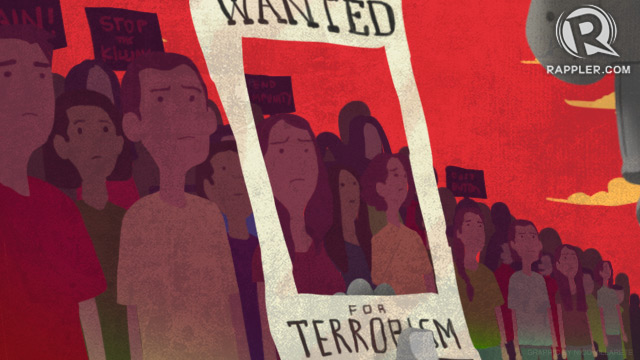
While everyone was distracted (and riveted by the ABS-CBN imminent-closure drama manufactured by Jose Calida and Alan Peter Cayetano), the Senate passed the Anti-Terrorism Bill on third and final reading.
While everyone was worried about their telenovelas and love team portmanteaus and noontime shows, the bill sneaked past us. Barely a whimper was heard from the senators, except for two.
The terrorism bill sought “to provide law enforcers the legal tools to protect people from terrorism and at the same provide safety nets to protect the rights of those accused of the crime.”
Many civil liberties advocates will tell us, going after terrorists is a double-edged sword. The hand wielding the sword should be cognizant of this immense power and immense responsibility – or it may just end up severing its other hand. Or be an accomplice to something akin to harakiri.
Look at the words in bold “protect people from terrorism” and “safety nets.” This type of legislation – like the USA Patriot Act – quixotically seeks to find a balance between protecting us from real evil like homegrown, foreign-influenced groups like the Abu Sayyaf and the Maute Group, while preserving our civil liberties.
Bitter debate still surrounds the Patriot Act. Despite the strong institutions of the United States, critics score the Act for having little oversight due to its secrecy, opacity, and its propensity to ostracizing communities via "guilt by association."

What’s wrong with the terrorism bill? Senators Risa Hontiveros and Francis Pangilinan, who voted against the measure, warn of possible abuse.
Pangilinan says the definition of terrorism is "vague.” Common crimes can be framed by erring law enforcers as terrorism. He points to the “arrest-and-detain-now, produce-or-invent-evidence-later” practice of the police.
That's not all. The bill also extends the number of days a suspect can be held without a warrant of arrest – from 3 days under the current set-up to a whopping 14 days.
Imagine if it were you who got arrested. That would theoretically give your torturers more time to rape you, put slivers of bamboo between your fingernails, and give you the waterboarding treatment. Meantime, lawyers and parents looking for you will not be able to gain access to you for almost half a month. (READ: Finding Sherlyn Cadapan)
Make no mistake, this will not only impact the so-called extremists, the communists or the radicals. The bill also allows the police and military to conduct 60-day surveillance on suspected terrorists, compelling telephone companies to disclose calls and messages.
That could be used against anyone who pisses off the powers that be. It could be used against Carlo Katigbak and Maria Ressa. It could be used against smart-mouthed students, outspoken priests, and activist-farmers. It could be used against you.
Both Hontiveros and Pangilinan say there are enough laws to go after terrorists and safeguard against terrorism.
In the world we live in now where red-tagging is rampant and corrupt law enforcers kill 17-year-old kids like Kian delos Santos in the name of “nanlaban” (resisting arrest) – who will be the next “terrorists”? Make no mistake – that could be us.
While the terrorism threat is real, laws that empower dishonest, unprofessional, and IQ-challenged policemen, and give these petty gunslingers super powers are the bigger threats.
The Terrorism Bill cannot give us a “strong legal structure that deals with terrorism to exact accountability, liability and responsibility” – not within the framework of our broken legal system.
This just adds a nuclear-grade bazooka to the arsenal of government – a government that weaponizes the law to silence critics and the opposition. – Rappler.com



















